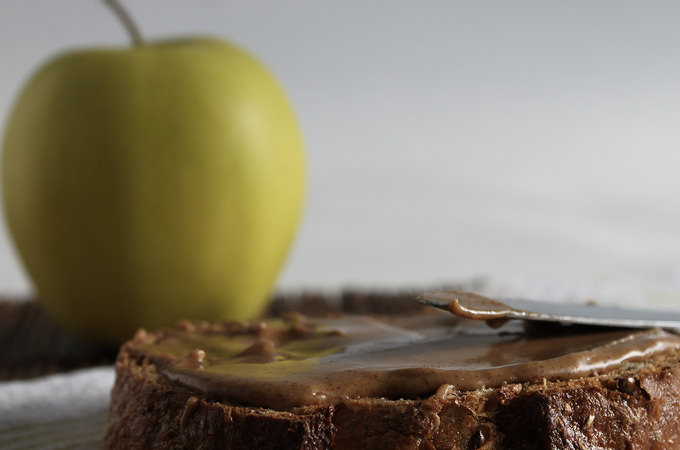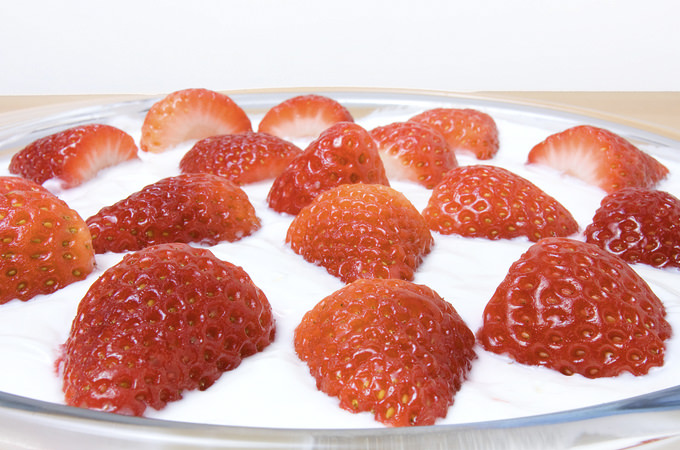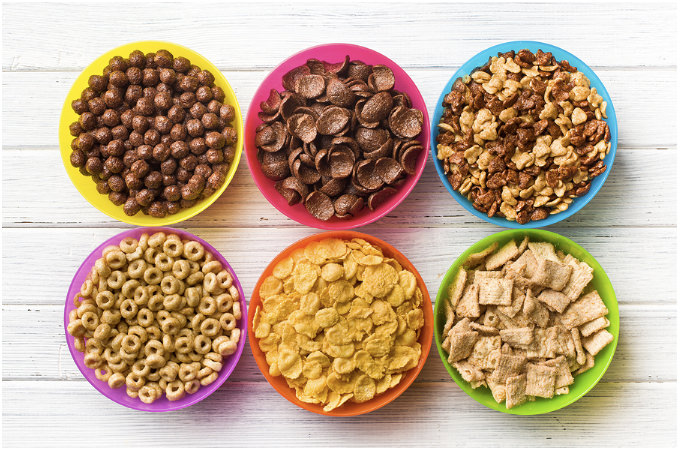
Before you run out the door without a good breakfast, consider that you’re setting yourself up for overeating later in the day. A nutritious breakfast can give you energy, ward off hunger, and set you up for making healthy food choices all day long.
Your morning meal should be a balanced combination of protein and fiber, and fortunately, there are plenty of options to choose from. Here’s a list of the best breakfast foods to sustain your energy and manage your weight.
1. Eggs
With 13 essential nutrients, about 6 grams of protein and a mere 70 calories each, eggs are an ideal way to start off your day.
Eggs are rich in several of the B-vitamins, particularly biotin. These vitamins are necessary for protecting your nervous system against damage caused by toxins in your body.
Eggs have been demonized over the last few decades. Health experts believed eggs were bad for heart health, and so this breakfast staple became the subject of intense criticism and scrutiny.
Fortunately, several health organizations came forward to refute the claims and tout the benefits of eggs.
There’s no arguing that egg yolks are high in cholesterol, but the medical community now understands that dietary cholesterol is different from blood cholesterol, which increases the risk of stroke and heart attack.
Consuming eggs will have no effect on your overall blood cholesterol level. While this is true, eggs have not been cleared for unlimited consumption. Therefore, you should have no more than four eggs a week if you want to maintain good health.
Try them poached on whole grain toast, scrambled with a little goat cheese or in a hearty omelet filled with spinach, tomatoes and cheese.
If you are running late and don’t have time for a sit-down breakfast, you can hard boil a few for a convenient, on-the-go breakfast bite that comes pre-wrapped in its own adorable little package.

2. Oatmeal
Oatmeal-and we’re talking the slow cook steel-cut kind more than the just-add-water instant flavored variety-is full of fiber, which helps satisfy hunger and keeps you from heading for the vending machine by 10 AM.
There’s no better way to get the energy and strength you need to carry you through a hectic morning than with a steaming bowl of oatmeal.
Your ancestors ate oats because they’re cheap and grow anywhere. Today, we know that oatmeal is tasty, nutritious and offers loads of benefits.
One cup of oatmeal has only 130 calories, and it stays in your stomach longer to curb your cravings. Oatmeal also has tons of omega-3 fatty acids, which may help keep your heart healthy and your cholesterol levels in check.
In addition, you’ll benefit from potassium, folate, and beta-glucan, a kind of fiber that can help lower cholesterol. The high fiber and complex carbs also slow down the conversion to simple sugars and thereby, reduce the risk of type 2 diabetes.
Pair your bowl of oats with low-fat or almond milk, fresh fruit and some nuts. Add a sprinkle of cinnamon and a teaspoon of honey to give your oatmeal an extra kick without the need for adding sugar.

3. Grapefruit
Being part of a fad diet hasn’t given the humble grapefruit the best rep, but this sweet and tart treat is a terrific way to get an early morning dose of immunity-boosting antioxidants.
The grapefruit diet may have been a bit much, but the enzymes, high water content, and low sodium concentration all work together to increase your body’s metabolism and aid weight loss.
Lycopene, a carotenoid pigment, which gives grapefruit its red color, is a powerful anti-cancer and anti-tumor agent. Lycopene’s power is enhanced when vitamins A and C are present – both these vitamins are also present in grapefruit.
Grapefruit is rich in vitamin C, a free radical destroyer that may help you avoid cancer. This fruit also contains plenty of fiber.
Narindenin is an antioxidant compound that repairs the DNA in cancerous prostate cells, so drinking a glass of grapefruit juice or eating the fruit whole will slow down the reproduction of cancer cells.
As long as you eat the fruit whole instead of juicing it, you can benefit from improved digestion and blood sugar management.
Grapefruit’s high water content also hydrates you and makes your belly feel fuller with few calories, which translates to less snacking between meals.

4. Almond Butter
Peanut butter is a classic, but the same amount of its lip-smacking almond cousin has less saturated fat.
Almond butter is a filling, nutrient-dense alternative to peanut butter that makes an excellent addition to your morning snack pack. There are more vitamins and minerals packed into every calorie of almond butter than any other nut.
It’s simple to make your own butter; just blend in your food processor with a little salt and honey for added taste. No matter how you blend – creamy of crunchy- it’s a little bit of heaven.
One of the best reasons to use almond butter is the great taste, but fortunately, you’ll benefit from the included vitamin E (to prevent oxidative damage) and omega 3 fatty acids (for maintaining heart health and metabolic rate).
It is also loaded with fiber to help your body rid itself of excess cholesterol. The fiber found in almonds may also help control blood sugar levels and save you from the dreaded mid-afternoon “crash.”
Mix some into your oatmeal or smear it on an apple or banana for a portable treat that’s also high in protein. If you’re craving a decadent treat without the fat, try spreading almond butter on a few dark chocolate squares.

5. Bananas
Yes, they’re high in starch. Yes, they have a decent amount of natural sugars.
Still, with a nutritional roster ripe with buzzwords like potassium, fiber and vitamin C, bananas have earned their place at the breakfast table.
Bananas are simple, unassuming, and readily available, but you’ll be amazed at the many benefits you’ll get from adding them to your diet.
Have a banana or two as a pick-me-up if you’re feeling depressed; the high levels or tryptophan converts into serotonin, which is a natural mood enhancing hormone.
Eat two bananas for breakfast if you have a strenuous workout planned and you’ll get an energy boost and sustain your blood sugar. Bananas have been known to cure hangovers, alleviate morning sickness, and reduce the risk of osteoporosis, kidney cancer, and diabetes.
These fruits are among the best sources of potassium available. Potassium is necessary for regulating fluid levels, maintaining proper nervous system health, lowering your blood pressure, and protecting your body from heart attack and stroke.
Try cutting up a ripe banana and putting it on oatmeal for a filling, nutritious breakfast. You can also use bananas with a variety of berries and other fruits to create delicious smoothies – add a bit of milk or soy milk to boost your calcium intake.

6. Tea
Though some people argue against the evils of caffeine if you need a pick-me-up you might as well choose a drink like tea instead of reaching for a sugary soda.
Tea has tons of antioxidants, as well as flavonoids and l-theanine, a compound that seems to help wake our brain up.
If you’re watching your weight, you’ll be happy to learn that tea keeps your waistline in check. People who consume hot tea regularly have smaller waistlines and lower BMI than people who don’t.
Black tea is made with fermented tea leaves and has the highest caffeine content. It protects your lungs from the damaging effects of cigarette smoke and reduces the risk of stroke. Black tea also contains trace amounts of tannins, which may act as free radical destroyers.
Green tea is made with steamed tea leaves and is a rich source of EGCG. Studies confirm that the antioxidants found in green tea can reduce the risks of lung, stomach, breast, bladder, pancreatic, and colorectal cancers.
So have a cup of tea in the morning and you’ll protect your body against cancer, prevent clogged arteries, burn fat, and lower your cholesterol.
If possible, choose regular green or black tea instead of decaf. The decaffeination process strips tea leaves of many of their key benefits.

7. Coffee
No need to feel left out, java junkies. The caffeine and antioxidant combo you pour into your mug have been linked to lowered risk levels for prostate cancer and diabetes.
Of course, a cup or two of Joe in the morning also helps make you more alert so that you can get down to business. Moderate coffee consumption may also help improve your memory.
According to several independent studies, coffee drinkers are less prone to serious diseases. Americans love their caffeine; just take a look at all the coffee shops around the country. While coffee drinkers wake up to the drink’s addictive flavor and eye-opening abilities, there are many other hidden benefits to be had.
The evils of coffee have been published over and over again, but coffee is a healthy drink. It protects your skin, brain, and body. And without that daily cup of coffee, most people would be missing the all-important antioxidants from their diets.
According to a 2005 study, there’s no known food that can provide as many antioxidants as a cup of coffee. It’s true that fruits and vegetables are rich sources of antioxidants, but the body absorbs the most from a plain cup of coffee.
Although black coffee is an acquired taste for many java drinkers, you should skip the fat-laden cream and shovelful of sugar. Also, avoid flavored ground coffee and coffee beans – the flavorings used in these versions are typically artificial.

8. Berries
Be they blue, straw or black, berries of all shapes and colors make good breakfast buddies. They are excellent sweet alternatives to breakfast items like pastries and doughnuts, which are loaded with sugar and refined flour.
Though tiny in size, berries are packed with fiber, vitamin C and antioxidants, and according to some studies, may even help prevent cancer and some age-related neurological disorders-all reason enough to toss a few onto your plate.
There’s a growing list of approved superfoods – nutrient rich foods that fight the signs of aging- but none so impressive as the berry family. Whether you’re chewing on blueberries or their relatives from exotic climates, berries have rightly taken center stage as the most beneficial super fruit – with good reason.
Eat berries more than three times a week and you’ll lower your risk of heart attacks by 34 percent. Blueberries and strawberries have high concentrations of anthocyanin, an antioxidant that’s been proven to improve the function of blood vessels and lower blood pressure.
Top your morning oatmeal with berries or use them on whole-grain cereal instead of pouring on sugar or artificial sweeteners. If you need a bit of extra sweetness, try honey or agave nectar.

9. Greek Yogurt
Fill your bowl with creamy, silky smooth Greek yogurt and your waistline, taste buds and skeleton will all be thanking you.
Greek yogurt has about double the protein of the regular kind, plus tons of bone-enriching calcium and natural fiber for improved digestion.
Greek yogurt is more than just an on the go snack. The rich, thick and creamy goodness is a fantastic way to start your day. But more than just filling your tummy, Greek yogurt is beneficial for your health.
Most brands are calcium rich, so read the labels and select a brand with sufficient calcium to boost your bone and teeth health as well as your nerve and heart function.
Dig into a container of Greek yogurt to up your probiotics intake. Probiotics improve your digestive health, control bacteria growth in your gut, boost your immune system, and protect your general health. Look for “live and actives cultures” on the label of your favorite brands.
The best part is that Greek yogurt is downright yummy, even without toppings or sweeteners. There are plenty of flavored Greek yogurt varieties available on your supermarket’s shelves.
Because these versions are typically loaded with sugar and artificial flavors, though, you should stick to the plain kind. Top your yogurt with diced walnuts or berries for a little variety and a flavor boost.

10. Cereal
No, not Sugar Explode O’s or Marshy Mallows. Most of the cereals found on grocery store shelves are loaded with sugar and devoid of natural nutritional value.
Instead of opting for Chocolate Frosted Sugar Bombs, pick a box that has sugar low on the list and lots (a least 5 grams) of fiber.
Look for whole-grain varieties to add the most fiber and natural vitamins to your morning meal.
Cheerios, shredded wheat, raisin bran, Wheaties, and Kashi are all whole grain cereals with a high nutritional value.
Ignore the impossible claims on the front of the box and get the facts on the nutritional label. A wholesome cereal obeys the “rule of five”: it should have at least 5g of fiber and less than 5g of sugar in each serving.
The ingredients should have “whole wheat” listed – not “wheat”. Don’t serve cereals with artificial dyes or colors, chemical preservatives, and hydrogenated oils at your breakfast table. These ingredients have no place in a healthy diet.
Of course, you should stay away from the sugar jar when preparing your morning cereal.
There are plenty of healthier sweeteners, like stevia and agave nectar, which can make your breakfast enjoyable without loading your body down with sugar. You can also top your cereal with fresh banana slices or berries for even more health benefits. If you must have milk, stick to low-fat milk or soymilk.

